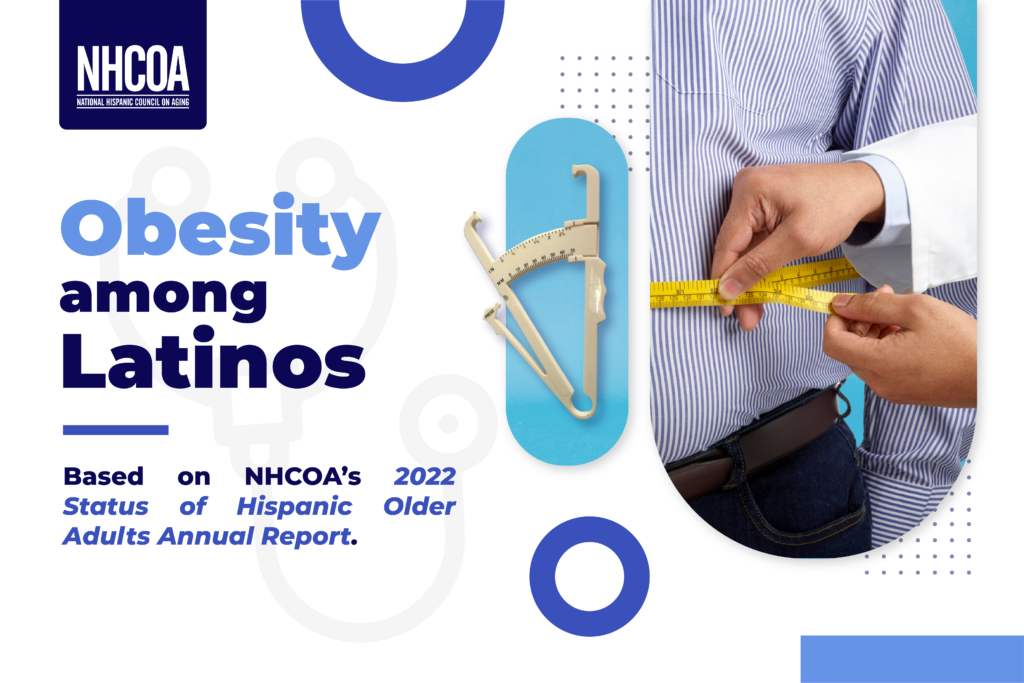
The Latin American population is increasingly affected by obesity and its negative impacts on health. As obesity rates continue to climb, the Hispanic/Latino community is still recovering from the impacts of COVID-19; the coronavirus pandemic increased the disproportionate number of Latinos who are simultaneously dealing with an obesity epidemic.
According to the Office of Minority Health, nearly 80% of Latin American women are identified as obese or overweight, compared to 64% of non-Hispanic white women. In 2018, Latin Americans were 1.2 times more likely to be obese than non-Hispanic whites. This situation is not much different among youth, as they are about 1.8 times more likely to be obese compared to non-Hispanic white youth.
For participants of the focus groups developed by NHCOA in 2022, obesity is a growing problem for Latinos, especially for children. Overall, participants attributed obesity to a sedentary lifestyle. This habit increased for many during the pandemic, due to a lack of physical activity and increased time spent on electronic devices.
Furthermore, negative lifestyle changes, stress, isolation, mental health, financial issues, cultural practices, and a lack of education and tools to improve health have also contributed to the excessive increase of this disease among Latinos.
All these aspects have conditioned the level of health of Latino immigrants, especially because their routine and way of life change dramatically in comparison to what they used to experience in their countries of origin. Other factors that play a role in this problem are the reduced access to healthcare information and the lack of affordable quality food.
Overweight and obese people are more likely to suffer from high blood pressure, high blood fat levels, diabetes and LDL cholesterol; diseases and conditions that are now very common among Latinos.
According to focus group participants, Latino children are the most affected by obesity. They suggested focusing on the cultural importance of childhood nutrition and eating habits, starting with educating parents and grandparents to spread awareness and lead to more effective and consistent prevention efforts.
This emphasizes the need for access to quality and affordable medical care for communities in need. It is essential that the government, organizations, social groups and communities develop initiatives to raise awareness about obesity and reduce its stigma.
Considering that obesity is a treatable disease and is mostly caused by lack of awareness and education, it is necessary to introduce healthy practices and habits throughout our communities. It is particularly important that we develop education that is based on the unique characteristics, traits and realities of our Latino communities inside and outside the United States.
Obesity education, the addition of physical activity and a progressive change in eating habits can ensure a decrease in obesity. It is necessary to focus on developing initiatives that allow Latinos to stay active while entertaining and developing themselves, such as dancing, outdoor games, walking or running on a daily basis. Obesity is a pandemic that can be tackled with healthy practices and good nutrition.

Recent Comments